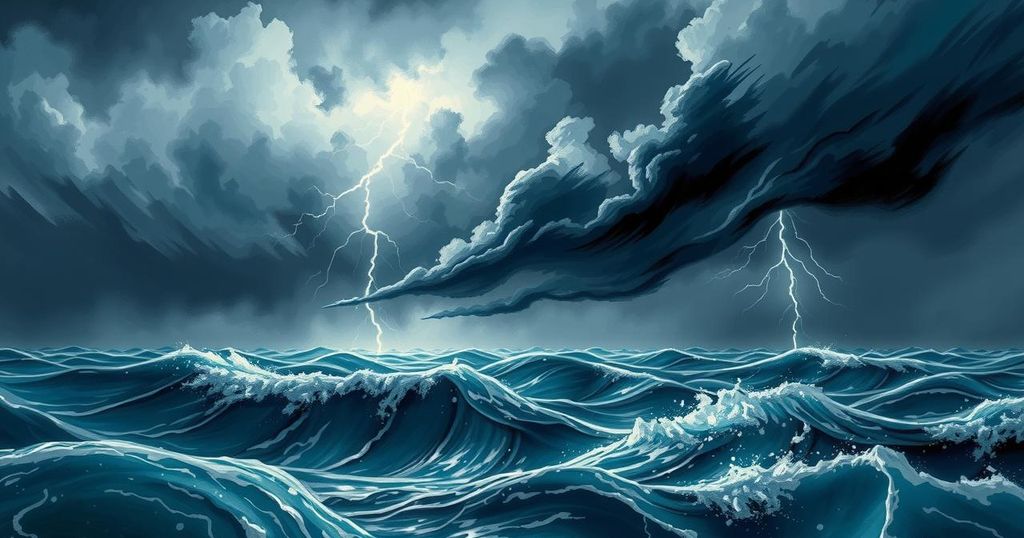Turkish President Erdoğan Compares Netanyahu to Adolf Hitler Amid Rising Tensions

Tensions rise as Turkish President Erdoğan compares Israeli PM Netanyahu to Hitler amidst ongoing military actions. This comment reflects deepening rifts between Turkey and Israel, both U.S. allies, complicating their relationship further. As both states ramp up military rhetoric, implications for U.S. involvement in the region grow.
The ongoing feud between Turkey and Israel intensified after Turkish President Recep Tayyip Erdoğan drew a disturbing parallel between Israeli Prime Minister Benjamin Netanyahu and Adolf Hitler. This comment came after Israel’s recent military actions against Iran, further fueling tensions in an already complicated relationship between these two key U.S. allies in the Middle East. Erdoğan’s remarks, made during a speech and shared on his account on X (formerly Twitter), particularly highlighted Israel’s actions in the region.
In his speech, Erdoğan stated, “Netanyahu has long surpassed the tyrant Hitler in the crime of genocide. We hope their fate will not be the same. Hopefully, sooner or later he will appear before an international independent court.” This statement has not only amplified tensions but also revived difficult historical emotions in Israel, as comparisons to Hitler are extremely sensitive, especially in light of the Holocaust.
The situation has become even more pronounced as both nations find themselves on opposing sides regarding the wars in Gaza and Syria. Erdoğan has called out what he termed “inhumane aggression” from Israel following its attacks on Iran’s military facilities. He emphasized to the Emir of Qatar that Netanyahu poses “the biggest threat to the region’s security.”
On the responding end, Israeli officials have not held back. Foreign Minister Gideon Sa’ar criticized Erdoğan’s inflammatory rhetoric, noting, “The Sultan in his own eyes, in yet another inflammatory speech, continues to incite against Israel.” Sa’ar pointed out Erdoğan’s own domestic repression of freedoms as a stark contradiction to his criticisms of Israel.
Israel and Turkey’s historical ties are complex. They have enjoyed periods of both alliance and conflict over the years, balancing strong economic and security connections with deep political divides. Just this Thursday, Israel retaliated with further strikes against Iranian targets after Iran attacked Israel with missiles, resulting in civilian casualties on both sides. The U.S. is currently weighing its options regarding potential strikes on Iran, which adds another layer of concern for regional stability.
Iran’s Supreme Leader Ayatollah Ali Khamenei was compared to Hitler by Israeli Defense Minister Israel Katz, who asserted that “he cannot continue to exist.” This stark rhetoric marks a significant escalation as both Israel and Turkey wrestle with their standing in the volatile Middle Eastern theatre.
While tensions are high, the fallout from the ongoing diplomatic rift may have serious implications for U.S. interests in the region. The fragile balance of power between Israel and Turkey, intertwined with international relations, particularly with Iran, leaves many wondering about the future stability in the area.
In the current situation, both nations seem determined to maintain their positions amidst growing global scrutiny. Observers will be watching closely as this situation unfolds, examining how it could potentially impact U.S. engagements in the broader Middle East.
The latest remarks by Turkish President Erdoğan have drawn a sharp and hurtful comparison between Israeli Prime Minister Netanyahu and Adolf Hitler, which has stirred significant outrage in Israel. Amid escalated military actions and tense rhetoric, the long-standing complex relationship between these two nations faces increasing strain. As U.S. interests hang in the balance, the potential for further conflict seems likely, keeping both regional and international communities on high alert for what comes next.
Original Source: www.newsweek.com







